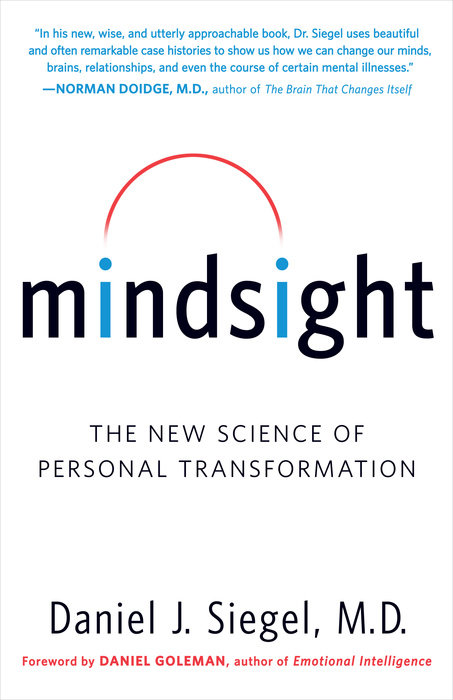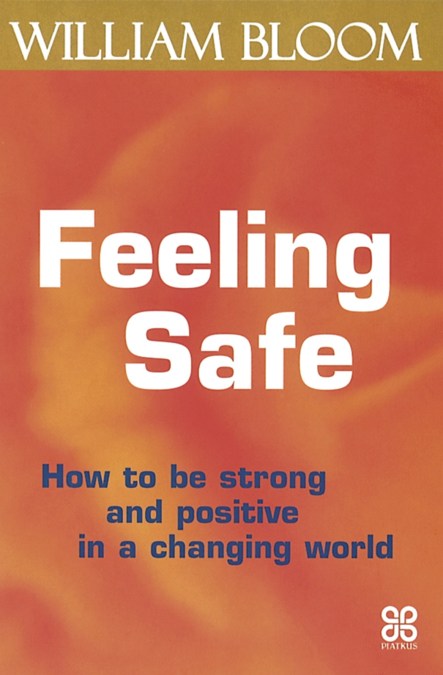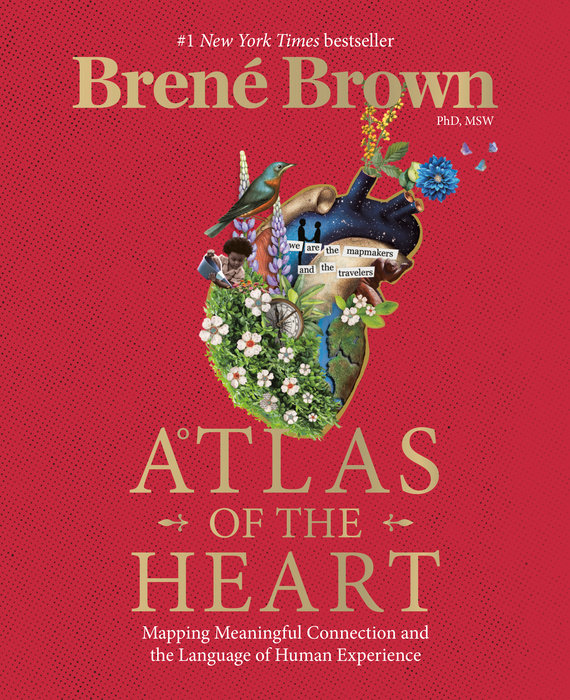It remains controversial—but it doesn’t have to be. We need to embrace both the neurodiversity model and the medical model to fully understand autism.
YOU MIGHT ALSO LIKE
CLEAR ALL
BY TOPIC
BY TEACHER
BY TYPE
FILTER

TOPIC
- Disabled Well-Being (109)
- Grit (94)
- Personal Development (93)
- Romantic Relationships (87)
- Talk Therapy (80)
- Communication Skills (68)
- ADD/ADHD (59)
- Parenting (56)
- Self-Discovery (56)
- Identity (53)
- Well-Being (53)
- Belonging (51)
- Anxiety (49)
- Habits of Mind (47)
- Connection (43)
- Neuroscience (43)
- Growth Mindset (41)
- Resilience (38)
- Child’s Autism (37)
- Depression (36)
- Young Adult Well-Being (36)
- Perception (34)
- Self-Care (33)
- Honoring Emotion (32)
- Athlete Well-Being (30)
- Habit Formation (30)
- Marriage (30)
- Children’s Well-Being (27)
- Intimacy (27)
- BIPOC Well-Being (26)
- Empowerment (26)
- Self-Acceptance (26)
- Self-Reflection Practices (26)
- Stress Management (26)
- Learning Styles (25)
- Self-Limiting Beliefs (25)
- Child’s ADD/ADHD (24)
- Family Dynamics (24)
- Friendship (24)
- Self-Esteem (24)
- Social Presence (24)
- Authenticity (23)
- Self-Mastery (23)
- Sexuality (23)
- Imagination and Creativity (22)
- Memoir (22)
- Women’s Well-Being (22)
- Offering Support to Others (21)
- Self-Actualization (21)
- Adaptability (20)
- Black Well-Being (20)
- Body Image (20)
- Confidence (20)
- Goal Setting (20)
- Negative Self-Talk (20)
- Self-Reliance (20)
- Synesthesia (20)
- Trauma Healing (20)
- Emotional Intelligence (EQ) (19)
- Mindfulness (19)
- Self-Healing (19)
- Self-Realization (19)
- Social Justice (19)
- Speaking Your Truth (19)
- LGBTQIA Well-Being (18)
- Positive Thinking (18)
- Search for Purpose (18)
- Self-Love (18)
- Self-Worth (18)
- Discrimination (17)
- Finding Meaning (17)
- Highly Sensitive People (17)
- Human Potential (17)
- Mind-Body Connection (17)
- Motivation (17)
- Awareness (16)
- Cancer (16)
- Fellowship and Community (16)
- Happiness (16)
- Self-Compassion (16)
- Stress (16)
- Transformation (16)
- Veteran Well-Being (16)
- Divorce and Breakup (15)
- Fear (15)
- Physical Health (15)
- Shame (15)
- Activism/Service (14)
- Anger (14)
- Courage (14)
- Decision Making (14)
- Gratitude (14)
- Life Challenges (14)
- Meditation (14)
- Mindfulness Practices (14)
- Productivity (14)
- Relationship with Time (14)
- Setting Limits and Boundaries (14)
- Sex (14)
- Social Anxiety (14)
- Brain Health (13)
- Child’s Emotional Growth (13)
- Creative Well-Being (13)
- Positive Self-Talk (13)
- Problem Solving (13)
- Vulnerability (13)
- Work Challenges (13)
- Body Positivity (12)
- Entrepreneurship (12)
- Work Relationships (12)
- Access to Education (11)
- Addiction (11)
- Cognitive Psychology (11)
- Community Healing (11)
- Compassion (11)
- Identity Shifts (11)
- Inner Peace (11)
- Neuropsychology (11)
- Psychology (11)
- Self-Expression (11)
- Social Responsibility (11)
- Spiritual Growth (11)
- Acceptance (10)
- Criticism and Rejection (10)
- Failure (10)
- Forgiveness (10)
- Intention (10)
- Life-Altering Injury (10)
- Neuroplasticity (10)
- PTSD (10)
- Racial Identity (10)
- Suicide (10)
- Collaboration (9)
- Disconnection (9)
- Empathy (9)
- LGBTQIA Sexuality (9)
- Mental Health Challenges (9)
- Play (9)
- Positive Psychology (9)
- Presence (9)
- Self-Reckoning (9)
- Buddhism (8)
- Connection with Nature (8)
- Exercise (8)
- Gender Identity (8)
- Joy (8)
- Leadership (8)
- Loneliness (8)
- Philosophical Approaches (8)
- Self-Control (8)
- Self-Pressure (8)
- Toxic Relationships (8)
- Anger Management (7)
- Asking for Help (7)
- Focus (7)
- Grief (7)
- Inner Strengths (7)
- Kindness (7)
- Managing Energy (7)
- Manifestation (7)
- Memory (7)
- Peak Performance (7)
- Racism (7)
- Visualization (7)
- Withholding (7)
- Child’s Challenging Behavior (6)
- Chronic Anxiety (6)
- Curiosity (6)
- Dysfunctional Childhood (6)
- Freedom (6)
- Inner Life (6)
- Interdependence (6)
- Letting Go (6)
- Living as an Empath (6)
- Mentoring (6)
- Military to Civilian Re-entry (6)
- Passive-Aggressive Behavior (6)
- Race and Gender (6)
- Social Psychology (6)
- Spiritual Development (6)
- Transgender Well-Being (6)
- Trauma (6)
- Yoga (6)
- Addiction Recovery (5)
- Attachment Theory (5)
- Consciousness (5)
- Cross-Cultural Dynamics (5)
- Diet and Nutrition (5)
- Eating Disorders (5)
- Female Empowerment (5)
- Guilt (5)
- Healing Approaches (5)
- Healthy Eating (5)
- Hope (5)
- Integrative Medicine (5)
- Latinx Well-Being (5)
- New Relationships (5)
- OCD (5)
- Optimism (5)
- Self-Discipline (5)
- Tibetan Buddhism (5)
- Values (5)
- Work-Life Balance (5)
- Affirmations (4)
- Autoimmune Disease (4)
- Breathwork (4)
- Burnout (4)
- Caregiver Well-Being (4)
- Chronic Health Conditions (4)
- Chronic Pain (4)
- Cognitive Behavioral Therapy (4)
- Ego (4)
- Endurance (4)
- Global Challenges (4)
- LGBTQIA Relationships (4)
- Love (4)
- Men’s Well-Being (4)
- Motherhood (4)
- Narcissism (4)
- Oneness (4)
- Performance Anxiety (4)
- Post-Traumatic Growth (4)
- Racial Discrimination (4)
- Relationship with Money (4)
- Sexual Assault or Abuse (4)
- Sexual Health (4)
- Somatic Practices (4)
- Spiritual Awakening (4)
- Transitions (4)
- Trust (4)
- Unfulfilled Career (4)
- Work Ethic (4)
- AAPI Well-Being (3)
- Accepting Love (3)
- Aging (3)
- Animal Connection (3)
- Building Culture (3)
- Challenges with Teens (3)
- Child’s Anxiety (3)
- Clinical Depression (3)
- Dharma (3)
- Emotional Labor (3)
- Family Acceptance (3)
- Fatigue (3)
- Fiction (3)
- Forest Bathing (3)
- Generosity (3)
- Higher Calling (3)
- Holism (3)
- Immigration and Assimilation (3)
- Imposter Syndrome (3)
- Integrity (3)
- Intergenerational Trauma (3)
- Journaling (3)
- Living with Illness (3)
- Masculine/Feminine Dynamics (3)
- Mindfulness Meditation (3)
- Moral Philosophy (3)
- Panic Attacks (3)
- Racial Healing (3)
- Regret (3)
- Shadow (3)
- Sleep (3)
- Spiritual Life (3)
- Suffering (3)
- Willpower (3)
- A Course in Miracles (2)
- Academic Struggles (2)
- Alcohol Addiction (2)
- Animal Communication (2)
- Awe (2)
- Biofeedback (2)
- Building Character (2)
- Child’s Trauma (2)
- Codependency (2)
- Cognition (2)
- Conflict Resolution (2)
- Conscious Evolution (2)
- Digital Life (2)
- Doubt (2)
- Ecospirituality (2)
- Facing Own Death (2)
- Faith (2)
- Fatherhood (2)
- Female Friendship (2)
- Genetics (2)
- Guided Meditation (2)
- Homophobia (2)
- Hypnosis (2)
- Indigenous Well-Being (2)
- Intuition (2)
- Jungian Analysis (2)
- Midlife Crisis (2)
- Near-Death Experience (2)
- Neoshamanism (2)
- Nonbinary Well-Being (2)
- Nonviolence (2)
- Othering (2)
- Performance Pressure (2)
- Poetry (2)
- Psychology and Spirituality (2)
- Racial Justice (2)
- Rest (2)
- Ritual (2)
- Science and Spirituality (2)
- Shamanic Healing (2)
- Situational Depression (2)
- Social Media Addiction (2)
- Spiritual Direction (2)
- Spiritual Healing (2)
- Spirituality and Health (2)
- Storytelling (2)
- The Divine (2)
- Time Management (2)
- Unconscious Bias (2)
- Wake-Up Calls (2)
- Youth Activism (2)
- Abandonment (1)
- Acupressure (1)
- Animal Welfare (1)
- Art Therapy (1)
- Buddha Nature (1)
- Cannabis/CBD (1)
- Chronic Fatigue (1)
- Climate Change (1)
- Collective Trauma (1)
- Coming Out (1)
- Compassion Fatigue (1)
- Compassion Meditation (1)
- Conscience (1)
- Dark Night of the Soul (1)
- Death and Dying (1)
- Death or Loss of a Loved One (1)
- Despair (1)
- Domestic Abuse (1)
- Dream Analysis (1)
- Ego Dissolution (1)
- Ego Transcendence (1)
- Embodiment (1)
- Energy Healing (1)
- Enneagram (1)
- Environmental Justice (1)
- Feminism (1)
- Following Bliss (1)
- Gaming Addiction (1)
- Gender Challenges (1)
- Gender Discrimination (1)
- Generational Healing (1)
- Goddess (1)
- Grace (1)
- Handling a Child’s Illness (1)
- Heartmath (1)
- Household Labor (1)
- Humility (1)
- Incarceration (1)
- Indigenous Healing Approaches (1)
- Infidelity (1)
- Inner Child (1)
- Insight (Vipassana) Meditation (1)
- Jealousy/Envy (1)
- Judaism (1)
- Karma (1)
- Kids and Sports (1)
- LGBTQIA Children (1)
- LGBTQIA Parents (1)
- Longevity (1)
- Love Languages (1)
- Lovingkindness (1)
- Lovingkindness Meditation (1)
- Misophonia (1)
- Nutritional Medicine (1)
- Passion (1)
- Personality Disorders (1)
- Poverty/Economic Inequality (1)
- Prayer (1)
- Pregnancy and Childbirth (1)
- Psychedelic Research (1)
- Psychedelic-Assisted Therapy (1)
- Psychoanalysis (1)
- Quitting Your Job (1)
- Raising Daughters (1)
- Raising Nonbinary Children (1)
- Rebirth (1)
- Retirement (1)
- Sacred Feminine (1)
- Saturn Return (1)
- Self-Harm (1)
- Self-Hypnosis (1)
- Shamanism (1)
- Shared-Death Experience (1)
- Sleep Disorders (1)
- Slumps (1)
- Spiritual Practices (1)
- Subconscious (1)
- Sustainability (1)
- Sutras (1)
- Synchronicity (1)
- The Feldenkrais Method (1)
- Trauma-Informed Therapy (1)
- Unity (1)
- Vitamin Supplementation (1)
- War (1)
- Weight Concerns (1)
- Western Astrology (1)
- Women’s Rights (1)
- Zen Buddhism (1)
- Zen Meditation (1)
FILTER

TEACHER
- Edward Hallowell (8)
- Andrew Solomon (7)
- Brendon Burchard (5)
- Esther Perel (5)
- Lisa Feldman Barrett (5)
- Rick Hanson (5)
- Wayne Dyer (5)
- Elaine Aron (4)
- Gabor Maté (4)
- Gary Chapman (4)
- John Bradshaw (4)
- Julie Schwartz Gottman (4)
- Maya Angelou (4)
- Neil Pasricha (4)
- Oprah Winfrey (4)
- Daniel Amen (3)
- Debbie Ford (3)
- don Miguel Ruiz (3)
- Elizabeth Lesser (3)
- Gay Hendricks (3)
- Jay Shetty (3)
- John Perry (3)
- Lori Gottlieb (3)
- Ramani Durvasula (3)
- Swami Mukundananda (3)
- Terri Cole (3)
- The Dalai Lama (3)
- Thich Nhat Hanh (3)
- Alain de Botton (2)
- Alan Watts (2)
- Alejandro Jodorowsky (2)
- Andrew Weil (2)
- Brian Tracy (2)
- Bruce Lipton (2)
- Daniel J. Siegel (2)
- Gary Zukav (2)
- Harville Hendrix (2)
- HeatherAsh Amara (2)
- Helen LaKelly Hunt (2)
- Iyanla Vanzant (2)
- Jack Canfield (2)
- Jack Kornfield (2)
- John Gottman (2)
- John Sarno (2)
- Karla McLaren (2)
- Kelly McGonigal (2)
- Martin Luther King Jr. (2)
- Prince EA (2)
- Sharon Strand Ellison (2)
- Stephen Covey (2)
- Steven Johnson (2)
- Thubten Chodron (2)
- Tony Gaskins Jr. (2)
- Yongey Mingyur Rinpoche (2)
- Adam Grant (1)
- Amishi Jha (1)
- Anil Seth (1)
- Anne Lamott (1)
- Arianna Huffington (1)
- Bessel van der Kolk (1)
- Biet Simkin (1)
- Blaise Aguirre (1)
- Brené Brown (1)
- Chalene Johnson (1)
- Chan Khong (1)
- Chip Conley (1)
- Chögyam Trungpa (1)
- Connie Zweig (1)
- Daniel Goleman (1)
- David Feinstein (1)
- David J. Wolpe (1)
- David Spiegel (1)
- Dilip Jeste (1)
- don Jose Ruiz (1)
- don Miguel Ruiz Jr. (1)
- Dorothy Firman (1)
- Eckhart Tolle (1)
- Elizabeth Gilbert (1)
- Ellen Bass (1)
- Gangaji (1)
- Gaylon Ferguson (1)
- Geneen Roth (1)
- Gerald Jampolsky (1)
- Gordon Neufeld (1)
- Gretchen Rubin (1)
- Hyla Cass (1)
- Iskra Lawrence (1)
- James Baraz (1)
- James Doty (1)
- James Hollis (1)
- Jan Willis (1)
- Jana Long (1)
- Jane Hirshfield (1)
- Jean Houston (1)
- Jeff Brown (1)
- Jeff Foster (1)
- Jesus (1)
- Joan Borysenko (1)
- Joe Dispenza (1)
- John Welwood (1)
- Jonathan Haidt (1)
- Karen Casey (1)
- Kathlyn Hendricks (1)
- Kathy Freston (1)
- Ken Wilber (1)
- Kenneth Robinson (1)
- Kim Eng (1)
- Kristin Neff (1)
- Lama Tsultrim Allione (1)
- Leah Guy (1)
- Linda Graham (1)
- Linda Hogan (1)
- Lindo Bacon (1)
- Lise Van Susteren (1)
- Lodro Rinzler (1)
- Louise Hay (1)
- Lucille Clifton (1)
- Maria Sirois (1)
- Marie Forleo (1)
- Mark Nepo (1)
- Martin Seligman (1)
- Mel Robbins (1)
- Melanie Joy (1)
- Mihály Csíkszentmihályi (1)
- Moshé Feldenkrais (1)
- Naomi Shihab Nye (1)
- Nicole LePera (1)
- Oliver Sacks (1)
- Paramahansa Yogananda (1)
- Patanjali (1)
- Paul Gilbert (1)
- Poppy Jamie (1)
- Ralph De La Rosa (1)
- Ram Dass (1)
- Rich Roll (1)
- Robert A. Johnson (1)
- Ruby Wax (1)
- Rumi (1)
- Russell Brand (1)
- Sadhguru (1)
- Sandra Ingerman (1)
- Shakti Gawain (1)
- Shefali Tsabary (1)
- Sonia Choquette (1)
- Stan Tatkin (1)
- Stanley Krippner (1)
- Stephanie Y. Evans (1)
- Stephen Cope (1)
- Steven Kotler (1)
- Tara Brach (1)
- Terry Real (1)
- V (1)
- William Bloom (1)
- Yung Pueblo (1)
- Zainab Salbi (1)










